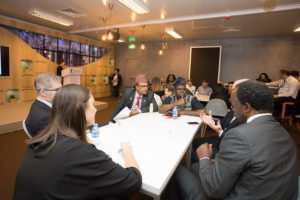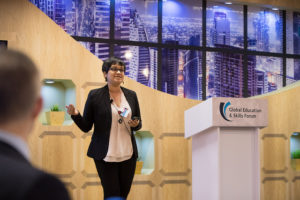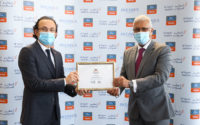7th GESF Highlights Importance Of Involving Girls In Stem Education
Science, technology, engineering and Maths (STEM) subjects are severely unrepresented by girls, observed panelists a session at the seventh annual Global Education & Skills Forum (GESF 2019), a Varkey Foundation initiative, taking place at The Atlantis, The Palm, Dubai.
At the discussion on ‘Getting girls into STEM’, Global Teacher Prize finalists Yasmin Ahmed, Dr Ken Silburn and Emma Russo gathered to discuss why the lack of representation in STEM education exists and what can be done to encourage females to study these subjects.
2015 Global Teacher Prize finalist, Yasmin Noorul Amin opened the debate by explaining that she has been teaching at a boy’s school for the past fifteen years, but that the attitude of boys to girls and their learning is a great contributing factor to changing stereotypes and gaining equal balance.
She stressed on the importance of changing family perceptions and encouraged teachers to educate parents on the range of job opportunities available to those who specialise in STEM subjects. She spoke extensively on the need for female teachers to be strong examples to male students in order to change their perceptions.
Emma Russo, one of the Top 40 finalists for the prize this year, discussed constantly striving to ease the barriers faced by girls who want to study physics and engineering in higher education. To this end, she set up a London wide termly event for female students and their parents called “Girls in Physics” where students are encouraged to bring their parents and meet and discuss opportunities with female industry professionals. She also stressed the importance of educating parents to the importance of interesting girls in STEM subjects. “I set up “Girls in Physics” to spread education because it’s frustrating for me as a physicist and a teacher to see such a low number of women continuing these subjects at university.”
Dr Ken Silburn, a 2017 finalist, spoke about his commitment to increasing the educational outcomes of science students across New South Wales in Australia. The headmaster pioneered a programme called iSTEM (invigorating Science, Technology, Engineering and Mathematics) which gave students from schools in his region the chance to participate in extracurricular science activities. He supported and encouraged participation from girls and documented them enjoying a huge variety of science related activities.
All three speakers were united in the belief that educating parents on the value of STEM subjects for young women was of the utmost importance and would have a positive effect on redressing the imbalance. They were also agreed that boys needed to be better educated to accept and encourage female participation in what has largely been a male led genre.
GESF 2019 this year is attended by five former Presidents and Prime Ministers and 40 Education Ministers. World leaders were joined by a new generation of change-makers, including grassroots activists, philanthropists, tech developers and many more, that are shaping the world with new voices, new ideas and new technologies.










